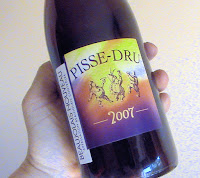Why the Defense Secretary is RIght but Wrong
It’s not every day the US Defense Secretary urges spending more on communications rather than military equipment, but that is exactly what happened yesterday. In a New York Times interview published today Robert M Gates is quoted as saying: “We are miserable at communicating to the rest of the world what we are about as a society and a culture, about freedom and democracy, about our policies and our goals,” he said. “It is just plain embarrassing that Al Qaeda is better at communicating its message on the Internet than America.” He goes on to propose a “dramatic increase” in spending on strategic communications, public diplomacy and other “soft power” programs. This quote and its context were in “Defense Secretary Urges More Spending for US Diplomacy”, at http://www.nytimes.com/2007/11/27/washington/27gates.html?_r=1&ref=world&oref=slogin Gates comments are very revealing because they show that even the defense secretary acknowledges the limitations of using force. It is a...


